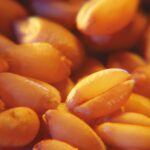China’s tariffs are on a small portion of Canada’s production, while the U.S. threatens a blanket hit.

A tale of two canola tariffs
China’s tariffs are on a small portion of Canada’s production, while the U.S. threatens a blanket hit

Bunge-Viterra deal highlights need for new approach to merger reviews
The size and scope of global firms renders competition oversight all but meaningless
If the acquisition is allowed, Bunge will become the world’s largest agricultural commodity trader. Selling off a few businesses in Eastern Europe will not stop it from using its massive footprint to influence markets, prices and production to advance its own interests at the expense of farmers, consumers and workers, no matter what country it operates in.

Comment: Bunge-Viterra merger has drastic implications for Canadian farmers
It’s time for farmers to once again have an owning stake in the grain system
Just five companies, known as the ABCD group, control up to 90 per cent of the world grain trade — and the B in this group is about to get much bigger. B is for Bunge, which has announced it is in the process of buying Viterra. The other ABCD companies are Archer Daniels Midland,

Comment: Science in the back seat on gene-editing decision
Gene-edited seed now stands on largely the same footing as traditionally bred plants in Canada, and there are problems with that
Even though they have no history of safe use in Canada or elsewhere, Agriculture Minister (Marie-Claude) Bibeau announced on May 3 that Canada will exempt gene-edited plants from the regulations faced by genetically modified crops and mandatory public notification unless they contain foreign DNA or if they are herbicide tolerant. For all other changes in

Comment: Farmers beware the variety use agreement
Are the voluntary agreements meant to normalize farmers paying for saved seed?
The eagerly awaited annual seed guides have arrived bringing farmers reliable information on which to base this year’s variety choices. These publications have a long history of providing objective, unbiased, science-based information. Data in the seed guides predict the agronomic performance, crop quality, and disease reactions expected from the crops in farmers’ fields. The seed

Comment: CFIA gene editing proposal problematic
The rules being floated are not science based or transparent
Canada is deciding how to regulate gene-edited plants – and is largely proposing not to. The Canadian Food Inspection Agency (CFIA) is responsible for regulating genetically engineered (genetically modified or GM) plants for environmental safety under the Seeds Act Regulations – Part V. These regulations define what is considered a “Plant with Novel Traits” (PNTs)

